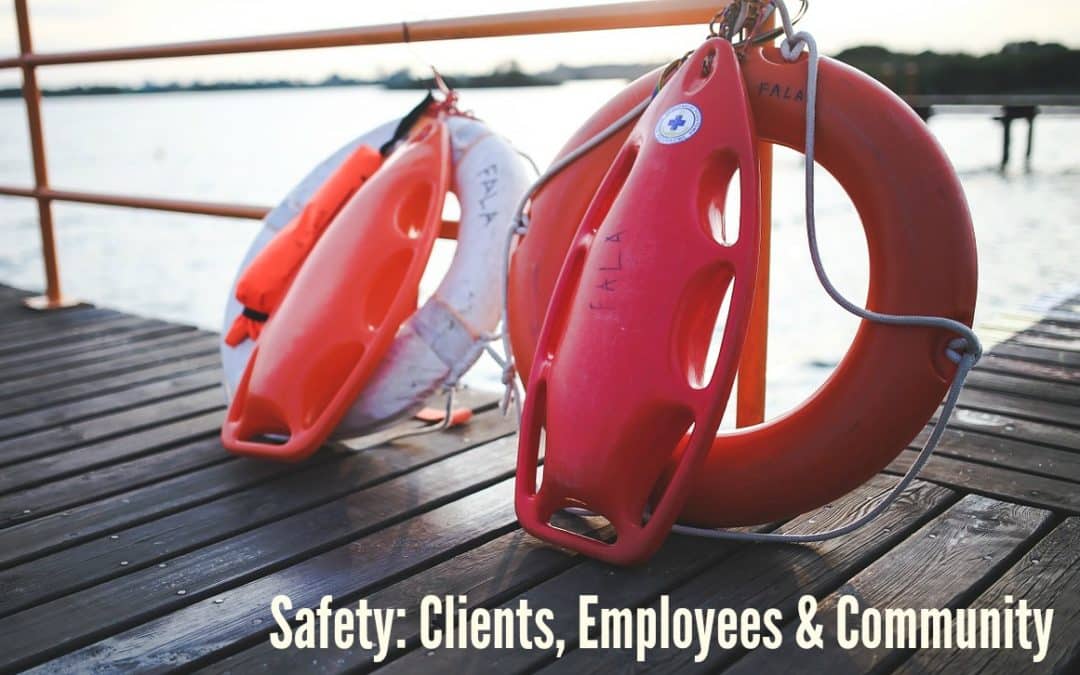When you bring people from all walks of life into a shared space (Sobering Center), there must be rules and guidelines to ensure safety not only for clients but also employees. Safety is an important core value at Houston Recovery Center, just as much as compassion and respect. Our agency works hard to provide client safety, community safety and employee safety.
Client Safety
“In our history, we’ve never had a client get injured in the Sobering Center,” says Tralanquelina Hinton, recovery support specialist manager. “I give credit to our CPI [Crisis Prevention Institute] training. Even if it takes 20-30 minutes to de-escalate a situation, we will do that first. We don’t do any physical intervention until clients show risk behavior that is a danger to themselves or others.”
CPI Nonviolent Crisis Intervention training provides the backbone to support safety as a core value at Houston Recovery Center. The training comprises three hours of online training and five hours of physical intervention training with Hinton. All 14 of the Sobering Center employees have completed the training, which covers skills such as nonverbal communication, verbal communication, rational detachment, staff fear and anxiety, and decision making.
Hinton says employees practice de-escalation skills every day. It’s not giving in to bad behavior, she shares, but treating clients like a human. For example, if an employee sees a client pacing, she said their response is to go in and talk to them and not yell at them to “go lay down.”
Employee Safety
Emergency medical technicians conduct an assessment of all clients that are brought to the Sobering Center. This is both for employee safety and client safety.
Houston Recovery Center will not accept clients who have taken PCP or bath salts. These drugs are unpredictable, and clients often turn aggressive after taking them. This small percentage of people are transferred to appropriate services that can meet their needs.
Community Safety
The Sobering Center not only operates as a space to allow people to sober up. It also serves as a warming or cooling center for the homeless when weather conditions get extremely cold or hot. Hinton says during the big freeze of 2018, all the beds were full in the Sobering Center.
Community safety also relates to keeping people out of harm’s way while they are intoxicated. A typical weekend involves campus police bringing college students into the Sobering Center. Hinton says these students could have been robbed or taken advantage of, yet fortunately the campus officer intervened and brought them to our agency. The same can be said of any public intoxicated person that can safely stay at the Sobering Center and not on the streets. The Sobering Center also provides law enforcement a quick way to get public intoxicated folks to a safe place, and then get back out on the streets for more serious issues. Six to 10 minutes is the average time for police to admit someone to the Sobering Center.
